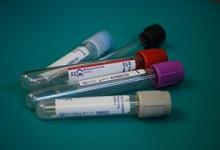NSAIDs Pose a Dose-Related Risk for Heart Failure Hospitalizations Save

BMJ has reported the results of a case-control study that analyzed the risk of hospitalization from heart failure associated with the use of NSAIDs amongst healthcare databases from four European countries (the Netherlands, Italy, Germany, and the United Kingdom).
Using 92,163 hospital admissions for heart failure (and a matched cohort of 8,246,403 controls), they analyzed these events against the use of 27 different NSAIDs, including selective COX-2 inhibitors.
The use of any NSAID (use in preceding 14 days) was found to be associated with a 19% increase of risk of hospital admission for heart failure (adjusted odds ratio 1.19; 95% CI 1.17 to 1.22), compared with any NSAIDs used in the past 6 months.
The odds of heart failure hospitalization increased for 7 NSAIDs (diclofenac, ibuprofen, indomethacin, ketorolac, naproxen, nimesulide, and piroxicam) and two COX 2 inhibitors (etoricoxib and rofecoxib); ranging from a 16% increased risk for naproxen to and 83% increased risk for ketorolac.
Higher NSAIDs doses resulted in a doubling of heart failure risk for diclofenac, etoricoxib, indomethacin, piroxicam, and rofecoxib. Interestingly there was no evidence that celecoxib increased the risk of admission for heart failure at commonly used lower doses.
The risk of heart failure and hospital admission varies amongst individual NSAIDs, but the effect appears to be dose related.
There is a long-awaited PRECISION trial that will examine the comparative safety of arthritis patients randomized to received either celecoxib or naproxen on cardiovascular events - These findings are expected by year end.
The widespread over-the-counter availability of NSAIDs makes this association a potentially dangerous issue for patients with heart disease and cardiovascular risk factors.










If you are a health practitioner, you may Login/Register to comment.
Due to the nature of these comment forums, only health practitioners are allowed to comment at this time.